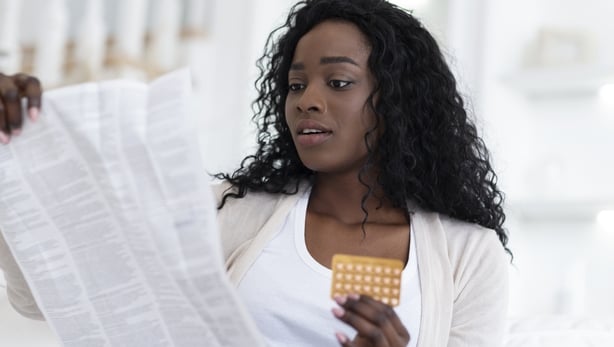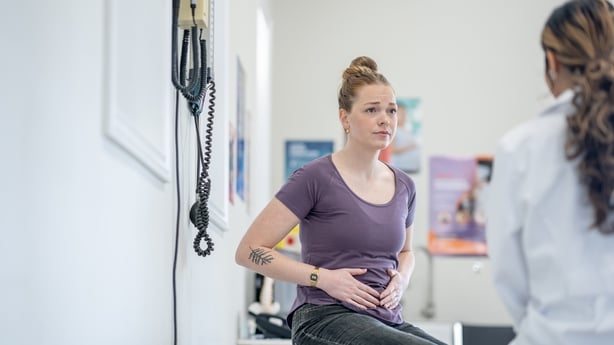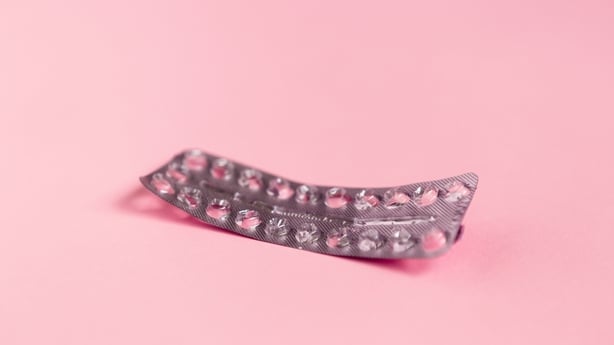Kate Demolder dives into the birth control pill
Ireland has one of the highest rates of contraceptive use in the world. According to The State of the World Population Report, released in April, which states that the contraceptive prevalence rate among women aged 18-45 in Ireland is 65%, rising to 70% among women those who are “at the meeting”.
So far, the most popular option for those women are contraceptive pills – 448,326 packets were distributed free of charge between January and September 2023 by the State as part of the new program.
The pill, when used correctly, tends to work wonders; performance rates approach 100%.
However, its existence is frequently criticized by devotees of the “pure,” food and beauty movement, which prevents modern medicine from engaging in “natural,” chemical-free practices. Although many doctors reject this method–which is chemically demonized, despite water, salt, and milk falling under “chemicals”–it leaves women of all ages dependent on the facts various misinformation.
As a result, hormonal birth control has a bad reputation, and some women choose not to take it for fear of side effects. But should we be alarmed, or is this just another case of not being told enough?

First thing’s first, ironically there seems to be a cultural belief out there that the pill is bad.
“I think a lot of people think it’s not natural, so it’s bad,” said Dr Geraldine Connolly, a gynecologist with 25 years’ experience in the field.
“The whole thing about the pill is that we use it in situations that are not life-threatening, instead we use it to improve the quality of a person’s life. benefit, And it really depends on where you are according to your risks and where you stand in terms of your benefits.
For example, if you have a young woman who is experimenting with sex, you need to weigh the risks of that person taking the pill and getting pregnant. pill at that time.
“Even if you have a medical condition such as polycystic ovary syndrome (PCOS) or endometriosis, one of the options we have to treat is to use the pill, which will help the quality of life of that person. .”

As a 31-year-old woman, the conditions of my adult life were created by the pill. Before you explained about 15 due to painful periods and hormonal acne, all the things I have achieved are saved by taking it every morning.
It’s a common story for women in my demographic, however as fertility becomes a painful, growing issue for many, some may wonder if fertility problems can be linked to birth control- long term hormonal birth control.
“You can never make a statement that the pill causes infertility, or that there is a direct relationship,” Amy O’Mara, a women’s health doctor insists. “There are 101 reasons why people suffer from infertility, and the pill may not have anything to do with them.”
“The pill definitely has a purpose,” Carla Buckley, a nutritionist and pharmacist shares. “But from our point of view, we see women who come to us who have been on the pill for years, and now they have an underlying condition, like PCOS or endometriosis, that has just been uncovered. it’s the pill at the time. They’re trying to get out of it, thinking something’s wrong–but it’s actually the first time communication has opened up between the brain and the reproductive system in a long time.”

The pill is regularly prescribed in Ireland for teenagers who develop any number of the following symptoms: acne, PCOS, painful periods, irregular bleeding, birth control and other hormonal problems.
A type of hormonal contraceptive, it works by changing the menstrual cycle. I am very happy that I used the pills, but some suggest that other methods should be given to the youth instead, or at least more education.
“I find that as women, we don’t have that strength sometimes,” Celine Nelli, Fertility Nutritionist & Women’s Health Practitioner shares on Zoom. “We’re just told to do this without fully understanding our bodies, and we don’t question it because doctors are this kind of super power. in the liver, and it can cause endocrine conditions in others.”
Our lack of knowledge about female hormones comes from a lack of female-centered medical studies when it comes to medicine and disease. Historically, most research was done on men, which resulted in only men’s symptoms and results of certain diseases appearing. Therefore, misinformation and fear continue. But, in terms of what the medical literature says about the pill, most of it is really good.
“All the literature I looked at about taking the pill for a long time said there was no risk associated with it,” Dr Connolly smiles.
“Now I think that needs to be tempered a little, because the longest I could find in any study was seven years, not 10 or 15. And that study is a big test of many and many different studies, they have said that it does not delay the onset of fertility. This is because you have used the pill, and when you try, it doesn’t happen right away.”

When it comes to cancer, another fear that many people fear when researching hormonal contraceptives, some studies show that women who use hormonal contraceptives are at an increased risk. of breast and cervical cancer. However, that higher risk appears to be temporary, and appears to decrease after a woman stops using birth control.
On the other hand, various studies have shown that hormonal contraceptives reduce the risk of developing other types of cancer, including colorectal, ovarian and endometrial. On the other hand, those benefits seem to last for decades, even after a person stops using birth control.
The balance, according to this study in the American Journal of Obstetrics and Gynecology, is “neutral”: with “increased risks that oppose the benefits of endometrial, ovarian, and colorectal cancer” lasting at least 30 years.”
The literature, in general, is good, Dr Connolly insists. That said, one can’t help but wonder about the persistence of such beliefs around the pill. Is there disgust and shame, do we think? “I think so,” says Dr Connolly. “We are a product of our society. That said, we’re moving on. There’s no doubt about it, really. For me, it’s great to see that young people are more likely to come forward to ask for good contraceptives or STD tests. infectious diseases I think that is very encouraging.
“You know, violence against women is widespread in all sectors of society. And there is no doubt that we have all kinds of discrimination, whether it is conscious or not. We bring our cultural beliefs with us, and we we can’t just turn them off. That’s right, we’re shedding them, and we’re starting over, and with the government support we have now, I find we have a lot to be thankful for.
For more information about birth control pills, talk to your doctor or visit www.sexualwellbeing.ie
The views expressed here are those of the author and do not represent or reflect the views of RTÉ
#Kate #Demolder #dives #birth #control #pill

